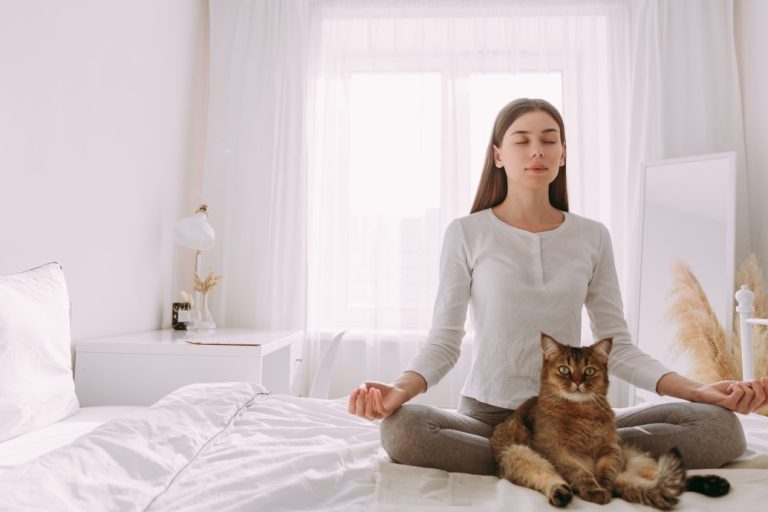
So, what exactly is mindfulness?
How can mindfulness bring about better sleep?
You may be concerned about your sleep or worrying about the negative effects of insufficient sleep. Instead of dwelling on the bad aspects of your sleep, try to focus on mindfulness principles that are consistent with the following ideas.
Have A New Mind
- Consider each night a fresh start. Take the focus off of past poor sleep before you go to bed.
- Do not assume that how you slept the previous night will have an impact on how you sleep tonight.
- Do not allow yourself to believe that every night will be a sleepless night.
- Approach sleep each night without any preconceptions.
- You can’t make yourself fall asleep. Falling asleep is NOT a result of effort or lack of trying.
- Consider sleep just like the process of consuming and digesting food: It just happens.
- Not trying to force sleep means finding a balance between wanting sleep to happen and simply allowing it to happen when it does.
Letting go
- Let go of the belief that your sleeplessness is an issue or problem that needs to be fixed.
- Allow whatever is going on (for example, not falling asleep) to occur naturally and without attempting to correct it.
- Ask others not to question you about how you slept last night as this can become a trigger and make letting go more difficult
Don’t judge or blame yourself
- Try not to see being in bed and lying awake as a negative thing. This creates negative energy that works against falling asleep.
- When you’re in bed and awake, tell yourself you’re “resting” and observe it without prejudice.
- Don’t associate your sleep with a “performance” that reflects success or failure.
Accept the situation
- Accept that you can’t directly control your sleep.
- Remember that sleep doesn’t usually happen when you’re trying to force it
- Acknowledge that sometimes you’ll get decent sleep and sometimes you won’t… but that’s ok
- Don’t see this acceptance as ‘giving up’, that brings a connotation of failure which this isn’t
Trust your mind and your body
- Given the appropriate circumstances, trust that your mind and body can self-regulate sleep.
- Don’t worry that your ‘brain is broken’, it isn’t
- Some knowledge about good sleep habits and practising them can help you understand your body and help you learn to trust it
Have patience
- Have patience and understand that resolving sleep issues can take time
- Treat working on sleep just like working on your body at the gym – and yes it takes time.
- Avoid being focused just on getting to sleep as an outcome and develop patience in the process itself.
Show gratitude
- When we’re lacking sleep or stressed it’s easy to focus only on our problems and this tends to make things worse.
- When you focus on a feeling of gratitude for all of the other things going well in your life, it’s easier to shift your focus away from worrying about sleep
Be generous
- Try to give your time and attention freely to others – this helps to take your mind off your own problems
- Talking to friends, relatives, and coworkers about their lives may be a meaningful present and a welcome diversion for you and your own concerns.
Mindfulness has the power not only to help you sleep better but also to improve your daily life. In order for mindfulness to work best, it’s important to practise regularly and learn how to apply it to everyday activities… and this can be as simple as focusing on the breath and eating something slowly.
There are many great apps and resources to help, and experts recommend doing a 30-minute mindfulness meditation at least 6 times a week, but even 10 minutes daily can make a difference.
You should, of course, speak with your GP if you have ongoing struggles with sleeping well at night. If you’d like professional sleep advice, our sleep experts are always available at 1800 717 566 for assistance.




